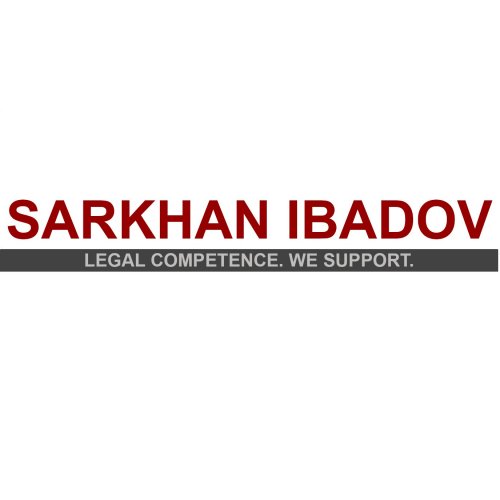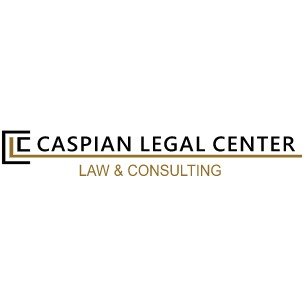Best Mining Law Lawyers in Azerbaijan
Share your needs with us, get contacted by law firms.
Free. Takes 2 min.
Or refine your search by selecting a city:
List of the best lawyers in Azerbaijan
About Mining Law in Azerbaijan
Mining Law in Azerbaijan governs the exploration, extraction, and use of the country's mineral resources. Azerbaijan has a diverse range of minerals including oil, gas, gold, copper, and other valuable resources. Mining operations are highly regulated to ensure sustainable development, environmental protection, and compliance with international standards. The core legislation covers everything from licensing, land use, and mineral rights to safety, taxation, and environmental responsibilities. Mining activities in Azerbaijan can be conducted by both domestic and foreign companies, but must adhere strictly to the relevant legal procedures.
Why You May Need a Lawyer
Mining activities are complex and often involve navigating intricate layers of administrative, environmental, and contractual law. You may need a lawyer specializing in Mining Law in situations such as obtaining a mining license, negotiating contracts with local partners, dealing with regulatory authorities, defending against government actions, handling disputes over mineral rights, or ensuring compliance with environmental and safety regulations. A lawyer can also help with due diligence, representing your interests in litigation or arbitration, and guiding foreign investors through the Azerbaijani legal landscape.
Local Laws Overview
Mining Law in Azerbaijan is governed mainly by the Law of the Republic of Azerbaijan On Subsoil. This law establishes the legal framework for subsoil use, including acquisition, use, and protection of mineral resources. The Azerbaijani government owns all subsoil resources and grants usage rights through licenses or production sharing agreements. Key aspects include environmental compliance, obligations to restore land post-extraction, health and safety standards, special rules for foreign investors, and detailed procedures for licensing. State agencies closely monitor compliance, and there are steep fines and penalties for violations.
Frequently Asked Questions
What is required to obtain a mining license in Azerbaijan?
To obtain a mining license, an individual or company must submit an application to the Ministry of Ecology and Natural Resources. The application process involves geological surveys, technical documentation, and proof of financial and technical capability.
Can foreign companies engage in mining activities in Azerbaijan?
Yes, foreign companies can participate in mining activities, but they are subject to local regulations and may need to establish a legal presence in Azerbaijan or enter into joint ventures with local partners.
What types of minerals are regulated under Azerbaijani law?
All minerals found within the country, including metals, non-metals, precious stones, oil, and gas, are regulated by Mining Law in Azerbaijan.
How are environmental issues regulated in mining projects?
Strict environmental assessments are mandatory before mining projects begin. Operators must comply with environmental protection plans and are responsible for land reclamation after mining operations end.
Is land acquisition necessary for mining projects?
Typically, mining rights do not equate to land ownership. The state may lease or allocate land for mining, but separate procedures apply for using or purchasing land if needed for infrastructural purposes.
Which state bodies regulate mining activities?
The Ministry of Ecology and Natural Resources is the primary regulatory body, often working alongside the State Committee for Property Issues and other governmental organizations.
What taxes and royalties apply to mining operations?
Mining companies are subject to corporate tax, value added tax, and specific royalties based on the type and volume of extracted minerals. These rates can vary and are detailed in the laws and decrees.
What happens if a mining company violates regulations?
Violations can lead to fines, suspension or revocation of licenses, and, in severe cases, criminal prosecution.
Are there special rules for oil and gas compared to other minerals?
Yes, oil and gas sectors operate under additional laws and often use production sharing agreements and contracts with state participation.
How long does it take to obtain a mining license?
The process can vary widely depending on the type of resource and completeness of application documents. It typically takes several months, but complex projects may require over a year.
Additional Resources
- Ministry of Ecology and Natural Resources - the main regulatory body overseeing mining and environmental matters. - State Committee for Property Issues - involved in land allocation and property registration for mining operations. - State Agency for the Use of Subsoil and Geological Exploration - responsible for geological surveys and subsoil use. - Azerbaijan Bar Association - helpful for finding qualified legal professionals. - Professional associations and trade organizations in the mining industry.
Next Steps
If you require legal assistance in Mining Law in Azerbaijan, consider the following steps. First, define your specific concern or need, such as licensing, contracts, compliance, or dispute resolution. Second, gather all relevant documents and information related to your mining activity. Third, reach out to a lawyer or law firm with experience in Mining Law and ask for a consultation. It is advisable to work with legal professionals who have direct experience navigating Azerbaijani regulations and who can represent your interests before governmental bodies. Prompt and informed legal advice can help you avoid costly mistakes and ensure successful mining operations in Azerbaijan.
Lawzana helps you find the best lawyers and law firms in Azerbaijan through a curated and pre-screened list of qualified legal professionals. Our platform offers rankings and detailed profiles of attorneys and law firms, allowing you to compare based on practice areas, including Mining Law, experience, and client feedback.
Each profile includes a description of the firm's areas of practice, client reviews, team members and partners, year of establishment, spoken languages, office locations, contact information, social media presence, and any published articles or resources. Most firms on our platform speak English and are experienced in both local and international legal matters.
Get a quote from top-rated law firms in Azerbaijan — quickly, securely, and without unnecessary hassle.
Disclaimer:
The information provided on this page is for general informational purposes only and does not constitute legal advice. While we strive to ensure the accuracy and relevance of the content, legal information may change over time, and interpretations of the law can vary. You should always consult with a qualified legal professional for advice specific to your situation.
We disclaim all liability for actions taken or not taken based on the content of this page. If you believe any information is incorrect or outdated, please contact us, and we will review and update it where appropriate.
Browse mining law law firms by city in Azerbaijan
Refine your search by selecting a city.










